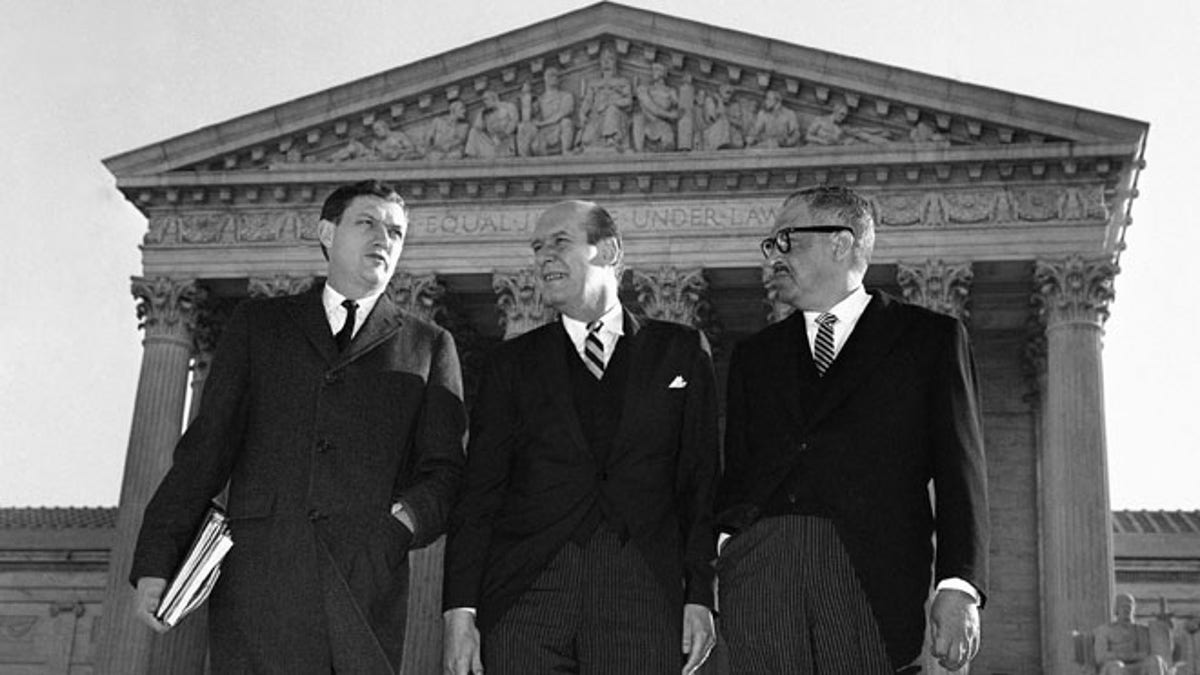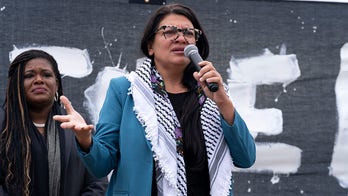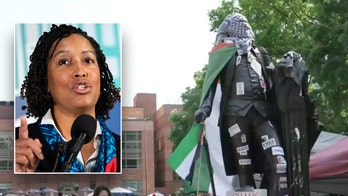
In this Jan. 17, 1966 file photo, Assistant Attorney General John Doar, left, stands with Attorney General Nicholas Katzenbach, center, and Solicitor General Thurgood Marshall as they arrive at the Supreme Court building in Washington to defend the legality of the 1965 Voting Rights Act. (AP)
WASHINGTON – John Doar, who as a top Justice Department civil rights lawyer in the 1960s fought to protect the rights of black voters and worked against segregation in the South, died Tuesday at age 92.
The cause was congestive heart failure, said his son, Burke Doar.
Doar was a Justice Department civil rights lawyer from 1960 to 1967, serving in the final months of the Eisenhower administration and then staying on during the presidencies of President John F. Kennedy and Lyndon B. Johnson. He rose to the position of assistant attorney general, or top lawyer, in charge of the department's Civil Rights Division and challenged discriminatory policies in Southern states that curtailed minority access to the voting booth and state universities.
A self-described "Lincoln Republican" who worked for the federal government at the height of the civil rights movement, he played important roles in some of the pivotal moments of that cause.
In 1962, for instance, Doar escorted James Meredith onto the campus of the University of Mississippi, even as then-Gov. Ross Barnett and angry crowds sought to keep the school segregated. He helped Meredith settle into his dormitory on a campus roiled by violent riots that left two dead.
He later was the lead prosecutor in the federal trial arising from the deaths of three civil rights workers — Andrew Goodman, James Chaney and Michael Schwerner — who were fatally shot in 1964 while in Mississippi to help blacks register to vote. A federal jury returned guilty verdicts against some defendants, including a deputy county sheriff, but acquitted others. Those killings inspired the 1988 film "Mississippi Burning."
"This was the first time that white persons were convicted for violent crimes against blacks in Mississippi. It was a historic verdict," Doar said in a 2009 C-SPAN interview.
Later in his career, he served as special counsel to the House of Representatives as it investigated the Watergate scandal, where in 1974 he recommended the impeachment of President Richard Nixon. Among the lawyers on the impeachment committee staff was Hillary Rodham.
He also served as special counsel to a judicial panel that investigated U.S. District Judge Alcee L. Hastings on bribery allegations. Hasting was impeached and removed from office.
In awarding him the Presidential Medal of Freedom in 2012, President Barack Obama credited Doar with laying the groundwork for the Civil Rights Act of 1964 and the Voting Rights Act of 1965.
He recalled how Doar, with his hands raised, successfully pleaded with protesters outside the 1963 funeral of Medgar Evers to go home peacefully rather than clash with heavily-armed police officers.
"He was the face of the Justice Department in the South. He was proof that the federal government was listening," Obama said.
In the C-SPAN interview, Doar described the election of Obama as "rewarding" and marveled at the progress made toward racial equality since 1960.
"Countless black citizens in the South couldn't vote. They were second-class citizens from cradle to grave. The discrimination was terrible, brutal. And to think, you know, that's over. It's done," he said.




